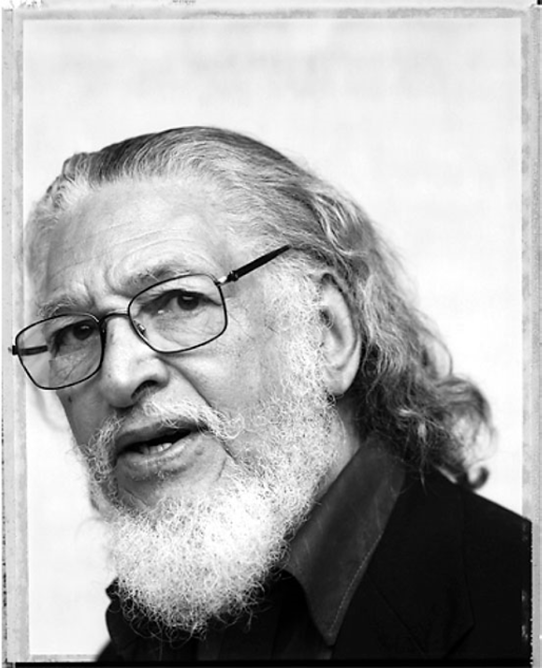Dennis Vincent Brutus (November 28, 1924 – December 26, 2009) was a South African activist, educator, journalist, and poet, best known for his campaign to have Apartheid South Africa banned from the Olympic Games.
Submit to our Remembering Dennis Brutus anthology by November 24th, 2024.

Stubborn Hope
Endurance is a passive quality,
transforms nothing, contests nothing
can change no state to something better
and is worthy of no high esteem;
and so it seems to me my own persistence
deserves, if not contempt, impatience.
Yet somewhere
lingers the stubborn hope
thus to endure can be a kind of fight,
preserve some value, assert some faith
and even have a kind of worth.
Dennis Brutus was arguably Africa’s greatest and most influential modern poet after Leopold Sedar Senghor and Christopher Okigbo.
Brutus was born in Salisbury, Rhodesia (now known as Zimbabwe) in 1924 to mixed parents, who while Brutus was a child migrated to South Africa and lived in Port Elizabeth. Brutus’ mother introduced him to English poetry early on, reading to him from the works of Tennyson and Wordsworth. He taught English and Afrikaans for fourteen years in South African high schools. However his active participation in protests against racism and apartheid laws in South Africa led to his dismissal from his teaching post in 1962 and his arrest in 1963. Brutus continued his protest activities until 1966, when he finally left South Africa for England. Banned by the South African Government from taking part in any social and political activities and under threat of being arrested and imprisoned without trial, he first moved to Switzerland but was unable to get a residence permit. Then he tried to move to Germany via Mozambique, but was arrested there and handed over to the South African police. In a desperate attempt to escape Brutus was shot in the back and subsequently sentenced to eighteen months imprisonment in the penal colony of Robben Island.
In 1965 he was freed from prison but a total ban was placed on his writings and publishing anything- a deprivation which finally led to his seeking exile in 1966. After a brief stay in England, he moved to the USA where he resumed teaching but also continued his campaign until the time of his death on December 26th, 2009. Towards the end of his life, he became actively involved in Green programs, at the Copenhagen Summit in particular. He also received awards from the new South Africa and countries around the world, including an honorary doctorate degree from the Nelson Mandela University.
Selected Poems
For my sons & daughters
Memory of me will be a process
of conscious and unconscious exorcism;
not to condemn me, you will need
forgetfulness of all my derelictions,
and kindness will be only yours
if you insist on clinging steadfastly
to some few small exaggerated symbols—
“This much he cared,” or “Thus he did”
and “if he could, he would have done much more”
This I can understand, for my affection
enables me to penetrate the decades and your minds
and now I seek no mitigation—
would even welcome some few words of scorn;
but it might help if, reading this,
if after adult bitter years,
you are enabled then to say: “He really cared then?”
“Really cared?” “Our fictions have some substance then!”
I will not ask you then to add what I do now:
my loneliness; my failures; my amalgam wish to serve:
my continental sense of sorrow drove me to work
and at times I hoped to shape your better world.
A Simple Lust
A simple lust is all my woe;
the thin thread of agony
that runs through the reins
after the flesh is overspent
in over-taxing acts of love:
only I speak the others’ woe:
those congealed in concrete
or rotting in rusted ghetto-shacks;
only I speak their wordless woe,
their unarticulated simple lust.
Today in prison
Today in prison
by tacit agreement
they will sing just one
song:
Nkosi Sikekela*;
slowly and solemnly
with suppressed
passion and pent up
feelings:
the voices strong and steady
but with tears close
and sharp
behind the eyes
and the mind ringing
wildly as a strayed
bird seeking some
names to settle on
and deeds being done
and those who will
do the much
that still needs to be
done.
*The asterisked “Nkosi Sikekela” in the poem refers to a Zulu song used as a national anthem by Africans south of Zanbezi
“Dennis was one of those rare individuals who had to tell the truth. He would always be in trouble because he could not keep his mouth shut and out of it came poetry and politics…If he had not been political, if he could have kept his mouth shut, he would have been recognized as one of the world’s great poets.”
– Larry Robin
Moonstone is celebrating Dennis Brutus and his legacy of protest. Due to his political involvement in South African apartheid politics, his poetry was not widely known during his lifetime. We aim to revive his legacy, and the work left to be done, through an anthology of poems in his honor.
We will also host a virtual reading on Sunday, December 1st for contributors to share their work.